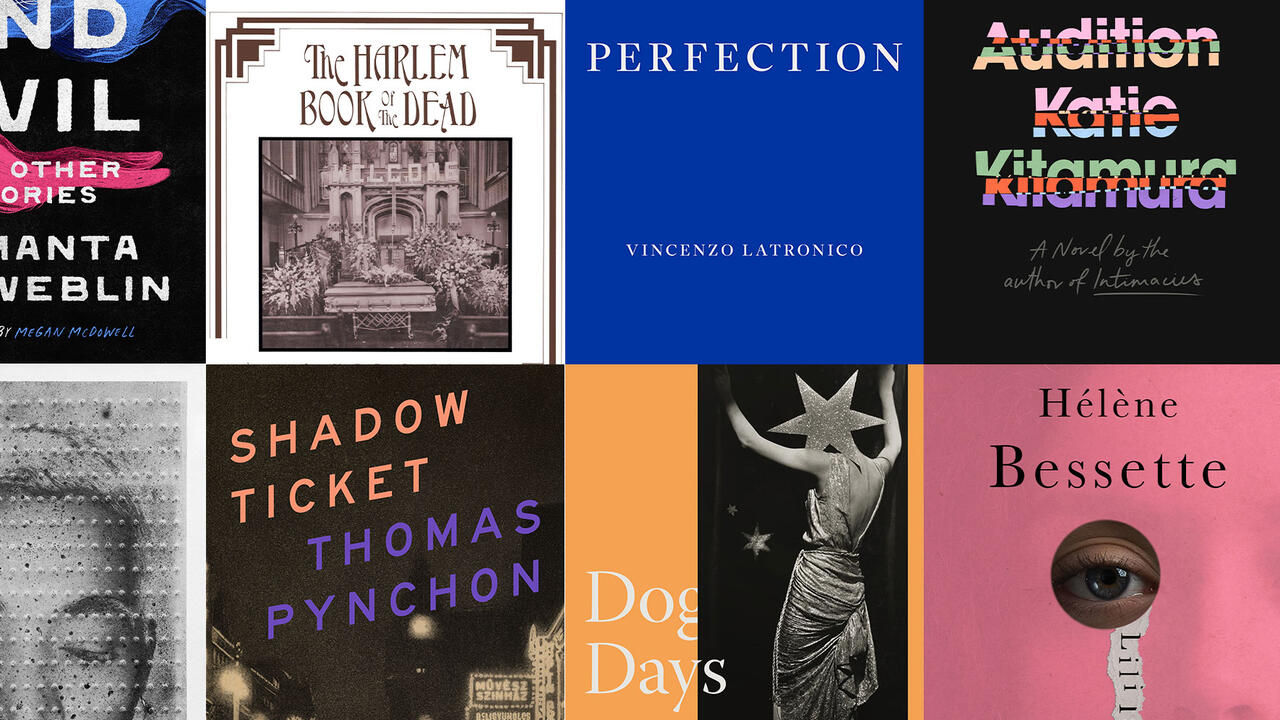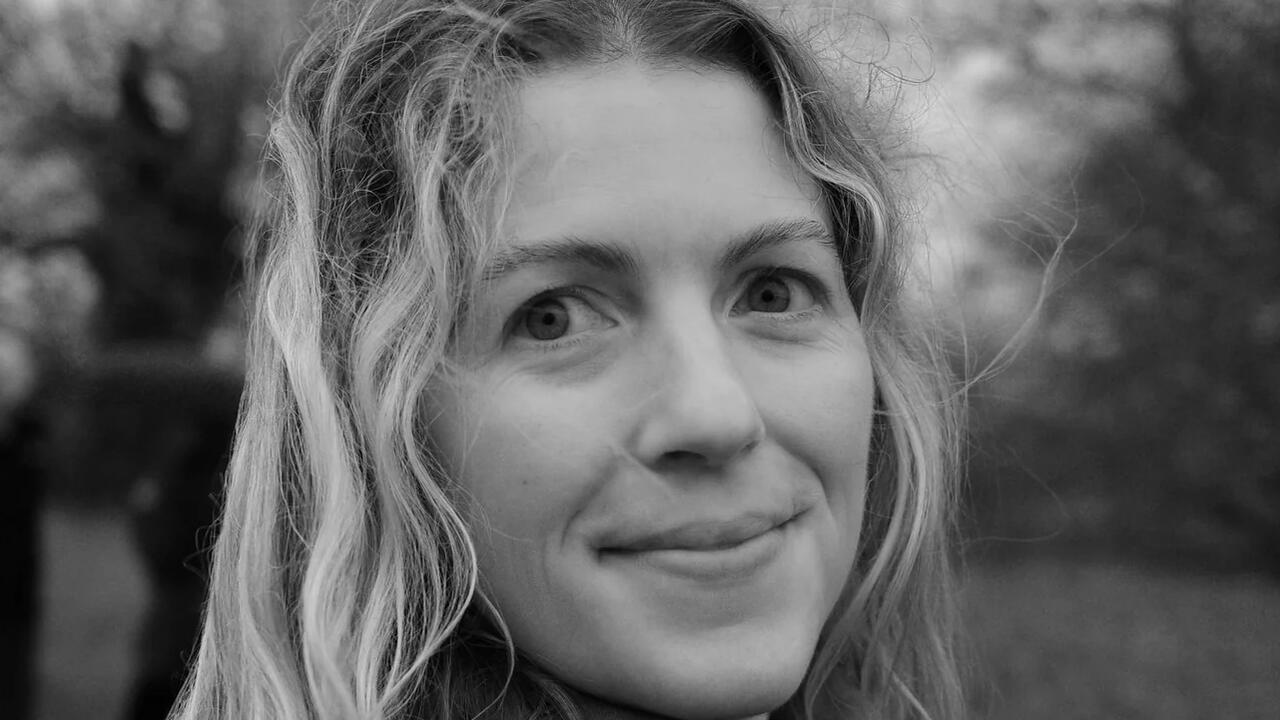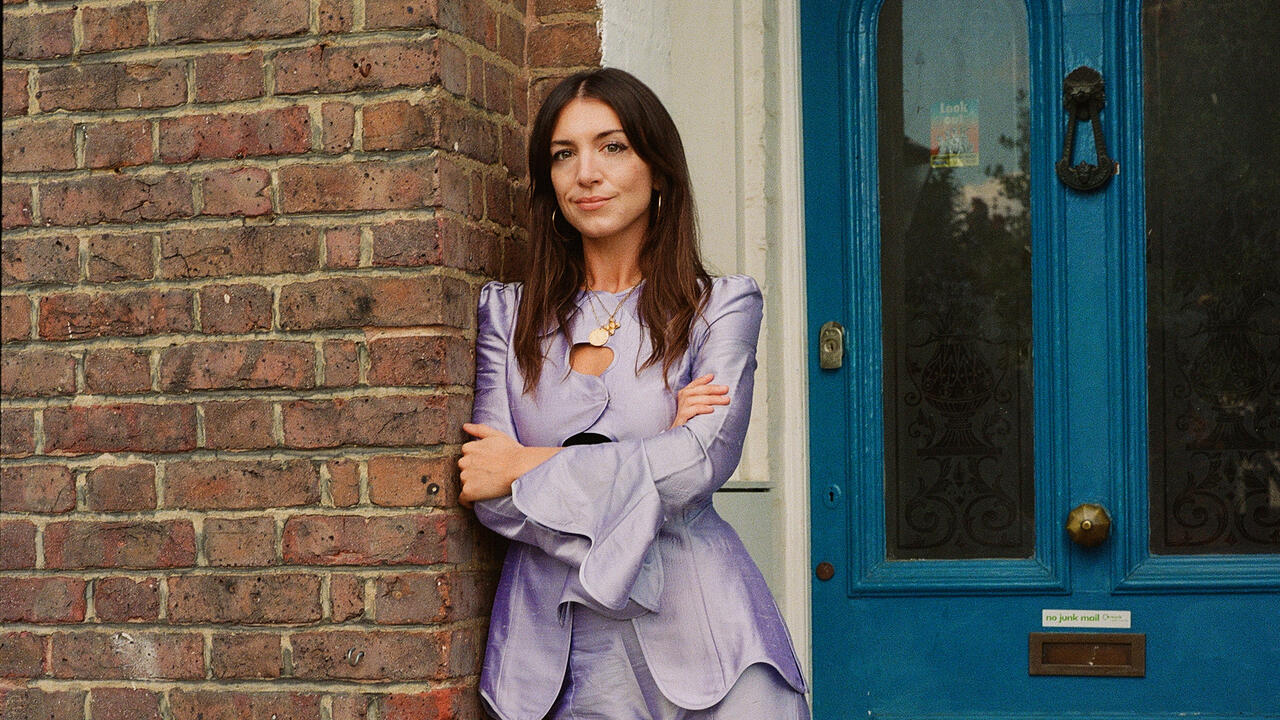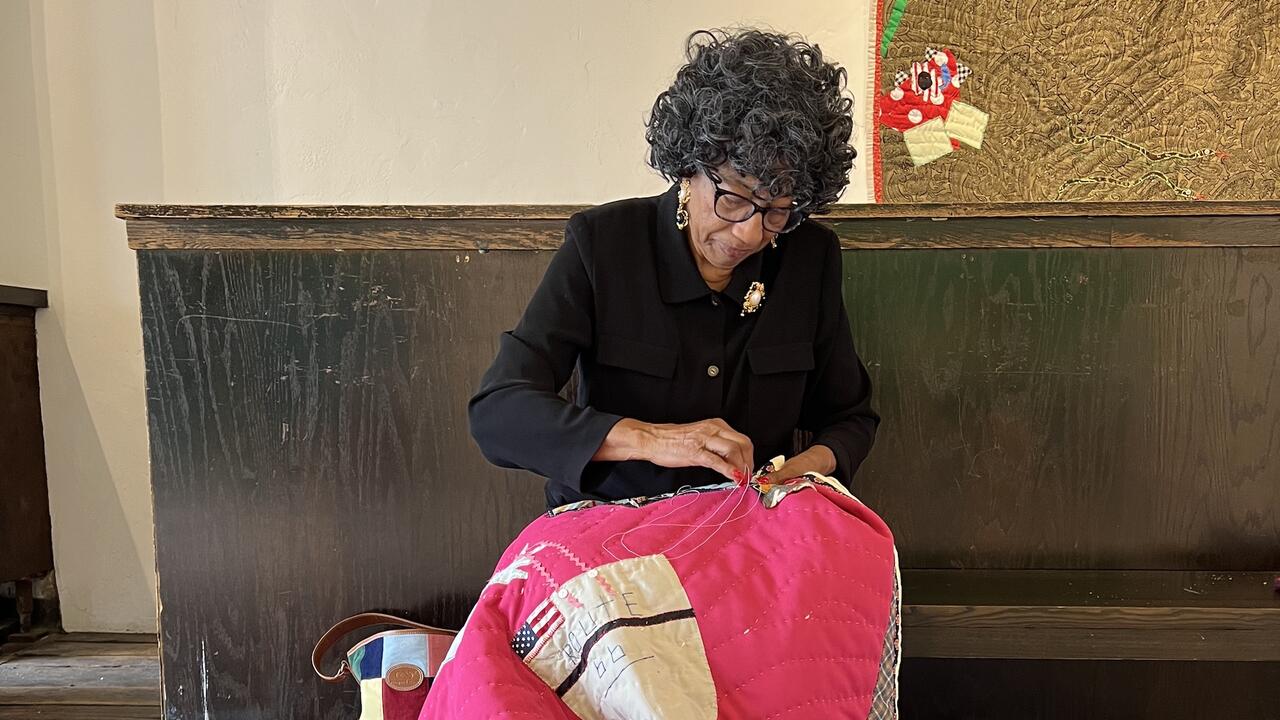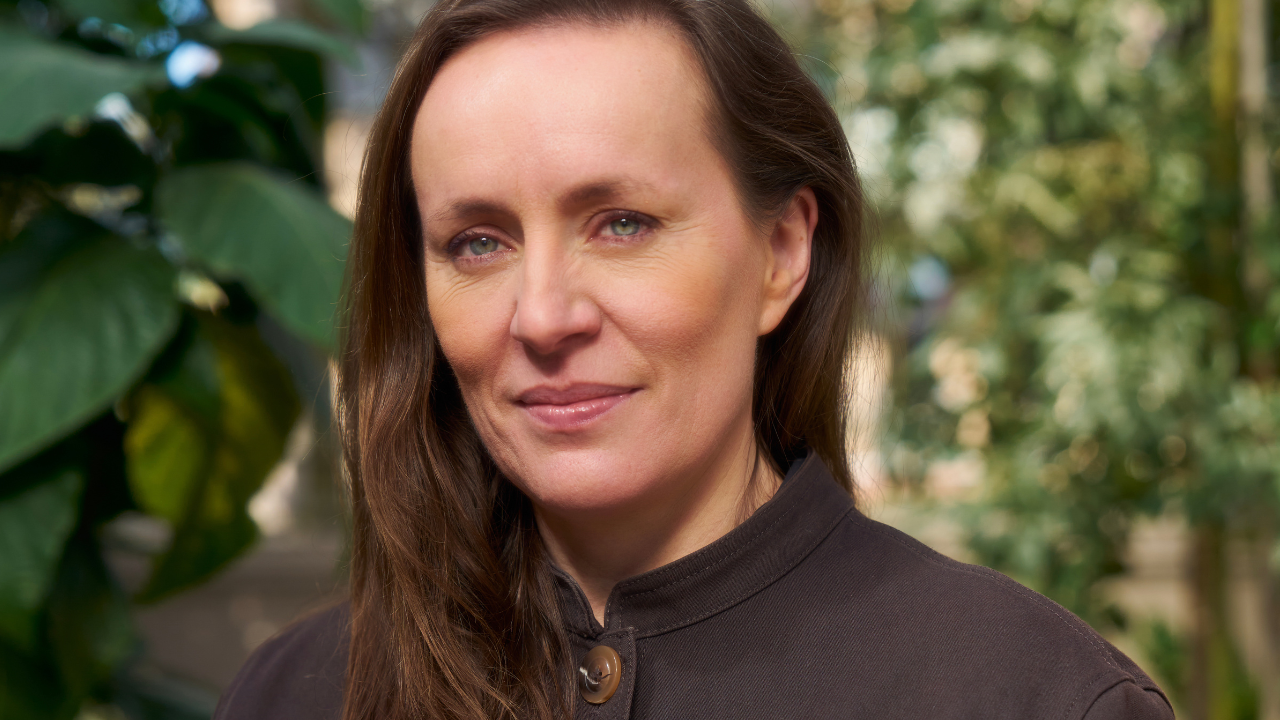The Game
An interview with Michèle Bernstein, novelist and founding member of the Situationist International
An interview with Michèle Bernstein, novelist and founding member of the Situationist International

Michèle Bernstein, who was born in 1932, was, along with her first husband Guy Debord, a founding member of the Situationist International. She left the Situationists in 1967, having written two novels, made several contributions to the journal Internationale Situationniste, and sparked various rumours. Since then, she has remained mostly silent. Debord’s oeuvre – entombed by state and hagiography, on display this year as ‘Guy Debord: Un art de la guerre’ (Guy Debord: An Art of War) at the Bibliotèque nationale de France in Paris –settles, while Bernstein’s anti-novels, Tous les chevaux du roi (All the King’s Horses, 1960/2008) and La Nuit (The Night, 1961/2013), were recently reissued in France, and have now both been translated into English. The latter, translated by Clodagh Kinsella, was published by Book Works in London earlier this year, along with After the Night – a détournement of the original set in London – by the artist collective Everyone Agrees, which operates out of London and New York. In this interview, Bernstein discusses the Situationists, her novels and her life after 1967.

Gavin Everall Tous les chevaux du roi and La Nuit were written in the very early years of the Situationist International. Was it your idea to write them, or a collective decision?
Michèle Bernstein Of course it was my idea. I was totally Situationist at the time. The first book was written at the end of ’57 and into ’58, and La Nuit 18 months after that. It was the years of what I call my lumpen secretariat. We were rather broke.
GE So, the books were written for money?
MB And for fun. For money and fun. It’s all in the new preface to The Night. Shall I read it to you?
GE No, perhaps just part. I’m really interested in the relationship of the Situationists to the form of the novel. Can you say more about this?
MB The Situationists considered the classical form of the novel to be totally obsolete. As we needed money, I decided to write a fake novel – a joke on the popular novels of the time, by Françoise Sagan and many others. And then I followed with La Nuit – a kind of joke on the nouveau roman, mainly publicized by Alain Robbe-Grillet, with elongated sentences, scrambled time sequences and indefatigable sentences. The nouveau roman was at the time considered to be the peak of modernity. Who knows? We were probably more modern, but nobody knew us. As for the nouveau roman, were they really a group? That was good for the media – they were with the same publishers, in the same photos, but were all quite different. Some of them I did like a lot.
GE How was La Nuit received by other members of the Situationists?
MB I don’t know. They did not speak of it. Guy thought it was fun.
GE Now the new edition has come out, what was the experience of re-reading it like?
MB It was strange. I thought that it would be much more boring than it was, but my publishers, Gérard Berréby and Danielle Orhan, said they enjoyed reading it, and so I thought why not? And actually I liked it. I see a lot more of me in it than of the nouveau roman and Robbe-Grillet, and more of me and Guy in the characters of Gilles and Geneviève, and I rather like them.
GE I was interested in this autobiographical aspect of it ...
MB Yes, but I should be clear on this: there are small clues only. The London version, After the Night, made me laugh out loud, but it contains three lies, two of which I can tolerate – and one that I cannot. They joke that I am 90 – usually I rather say that I am 200. The second I have already forgotten. The third, they say that everything in the novel actually happened. No, no, no: I was never interfering with the affairs of my husband, like a bourgeois harpy wife! But after that, they said to me that what really happened was in their novel, not in mine. So everything is alright and everyone agrees.
GE The book also draws heavily not only on the plot of Pierre Choderlos de Laclos’ Les Liaisons dangereuses [Dangerous Liaisons, 1782], which was made into a film directed by Roger Vadim in 1959, but many other films too.
MB At the time we were besotted with Les Visiteurs du soir [1942, released as The Devil’s Envoys in the US] directed by Marcel Carné. The synopsis of this film and Les Liaisons dangereuses are practically the same: the couple arrives, a game is played, and then one of them begins to be really in love with someone else, but it is all part of some transgressive game – which is not what it was with me; in La Nuit there is no pain in the end, nothing.
GE After the Night by Everyone Agrees suggests that Gilles and Geneviève are engaged in this game of transgression, which they finally abandon to reunite as a traditional liberal couple. I’m interested that you reject the idea of transgression.
MB Do they? I did not read that. Anyhow it was not a story of transgression either. In my book, Gilles is prevented from really falling in love with Carol. If he had, that would have been the subject of a traditional novel. Instead, it’s just a libertine game, no true transgression. At the end, there is just a little bitterness, which like a hangover will disappear. That’s life.
GE At the time, did you have plans to write a third version of the same story?
MB Yes, I wanted it to appear again as a comic strip, but this never happened.

GE Debord has always been cast as the figurehead of the group; as theoretician, strategist, executive, and most recently as secretary. Apart from the two novels, an article for the TLS [1964], and the typing of and contributions to Potlatch [1954–57], you have published very few articles in your name, and yet for more than a decade you were the closest to Debord. You have a different cast: not so much silent as secret – can I suggest a powerful, unknown presence? How much were you influencing the direction of the group?
MB Not powerful. Useful, I hope. I was speaking a lot with Guy, in private and in public, sharing ideas. But I did not write a lot, that’s true. Two reasons: one, I am lazy, and I don’t like writing – it’s so much easier speaking! Two, the style of the Internationale Situationniste [IS] became more and more political and philosophical, a style that I don’t master very well. At the end, I think that I was becoming allergic to the constant inversion of the genitive – misère de la philosophie, philosophie de la misère, you know. I had the feeling that the new Situationists were overusing it as proof of their credibility, of their Hegelo-Marxism, and it became, for me, the boredom of repetition, the repetition of boredom. I don’t always remember what I actually wrote in the journal but if it seems to have been written by a young, a bit snobbish, a bit frivolous, girl, it could be me.
We were all Marxists, of course – still are. Totally under the charm of the old man – the genius. Maybe he will become more and more important now. During the 30 years of affluent society, those non-Marxist-liberal-capitalist-spectacular-merchandising people would say: look, is not this world OK? But now that we are arriving, at least in the Occident, at a rampant pauperization of the people, isn’t Marx very present? However, I would not say that Marx is the alpha and omega ...
GE At the same time as this shift in style that you describe, and the influx of younger Situationists, Debord became less and less interested in art.
MB The problem was not being interested or not in art. The problem was the total absence of artists in the group after their exclusion. Everybody new was either in sociology, or a pure revolutionary, or a student … Meetings became heavier, and they also had less wit and less imagination … but I stayed until ’67.
GE You were one of the only members not to have been expelled. I’m interested in why you left, and of course what happened after.
MB No, I was not expelled. I quit. I can’t tell you exactly why, but will give you three steps towards it. First step: around ’65, Guy and I do not live together anymore. We had been married for eleven years, and you know what happens after eleven years – you fall in love with someone else. Not just a little affair, but really in love. So he fell in love with Alice [Becker-Ho], and I fell in love with someone who was not very important, but who was very dear to me at the time. But Guy and I stayed seeing each other all the time despite this. Step two: I had known him since we were 22, and I did not encounter him as the big chief, the one that nobody disagreed with. I could say no, and it was between us, and that was good for him. But, I also thought he was very important, and even when we did not agree in private, when we were with the Situationists he would have my vote.
GE Was the absence of artists in the group critical for you?
MB No. I missed them after their departure, or expulsion – particularly Gil Wolman, Asger Jorn, Maurice Wyckaert, Gruppe SPUR and Jacqueline de Jong – but I did not quit for that reason. I have said why before though it was then written that it was because I was a Zionist. Being or not being a Zionist has nothing to do with it; that was not the point.
GE Your departure coincides with the Six-Day War?
MB The arguments over this war were long and everyone was in agreement apart from me. And my position was simply this: Israel was not at the origin of the military conflict, it was Egypt. It was not the opinion at that moment of all the others. The law was simple, if somebody has a different opinion to the rest of the Situationists, they either kowtow, or quit. Everyone had to be of one voice. As I did not want to change my view, and still don’t, I quit. But, afterwards, Guy said to me, you stay clandestine, like Jorn. Yes. That did not mean a lot, as I was, anyhow, still friends with Guy, giving some advice in private – some good, some disastrous, but always in the spirit of treating a conflict with humour rather than with violence. In ’68, that meant finding cigarettes in the nearby suburbs on my bicycle, as there were no more cigarettes in Paris, making and writing a big banner to hang outside the Sorbonne … helping a bit with money. So, I was on the outside but nevertheless close until ’73. Then, I decided to use my liberty and I went to a feast to meet old friends – Wolman, François Dufrêne and others. Suddenly someone tall, draped in black, that I was not expecting at all because I thought he was in England, arrives ...
GE Ralph Rumney, who you’d not seen for years …
MB I had not seen him since he was excluded, which was the same year that we founded the Situationist International. And I don’t know how it happened, but a friend told me that she’d not seen two people so happy to see each other. We were. He was a widower, having been married to Pegeen, the daughter of Peggy Guggenheim, and I was now divorced. I was buying my flat and no longer wanted to be responsible, as Guy’s wife, for any financial costs or fines that the IS journal could have – actually in the end it had none, but since ’68 anything was possible; and [the publisher] Lebovici Livre was also giving him a lot more money, so I was no longer useful for that. At the end of ’73, Ralph and I married. Debord went into a rage, and this time excluded me for good.
GE Ralph talks about this in his book, The Consul [1999]. Guy wouldn’t speak to you?
MB No. From that time I have been in tenebrae. The dark place. With the Le Prince de Ténèbres. And in the following 20 years, I had two postcards from Guy. One to say ‘thank you’, because I sent him a lot of archives I had – books, tracts and so on. I had no manuscripts of his but all this printed material because I had always paid the bill for the storage.
GE And the second postcard?
MB Before he went to Gallimard, he asked my advice about a publisher. I thought it was a joke.
GE You mentioned sending money to Debord. How were you making money? Surely the much rumoured horse racing horoscopes weren’t funding Debord or the SI?
MB No. The horoscopes of the horses were a joke of Guy’s to Henri Lefebvre who did not see it was a joke and put it in one of his books. But true, I was making horoscopes, and other things, for a racing newspaper. After I was an adwoman, rather a good one, head of a small creative group at Havas – they had five or six small groups like mine. It was a pleasant job: you only had to find ideas and write them.

GE I’m surprised. Did you find that job hard, moving from a group who’d articulated a critique of capital, who’d developed the idea of the spectacle from ideas of commodification and reification, and who considered advertising one of the many manifestations of the spectacle?
MB No. Why would I? The problem with capitalism is not so much in advertising than in production and distribution. Advertising only makes things more obvious. At that time, creative people were, mainly, a lot of joyful leftists without specialization. And I was so bad with hierarchy that it pays for my advertising sins ...
GE So you remained a trouble-maker, perhaps even détourning the flow of capital?
MB A bit. I could tell you about how I ruined my career at Havas, but this interview is not about that. I moved from smaller to smaller companies, and then worked part-time, freelance. Anyhow, the interest was gone. After a certain time one knows that for problem number 22, one can apply solution number 22. Boring.
GE Where were you based?
MB In Salisbury, England. You laugh, why? Oh, yes, Salisbury is very blue ...
GE Yes blue, very conservative ...
MB ... and I moved there after I left Ralph. I found a house that I loved, The Old Parsonage, and stayed.
GE You mentioned when we first met that you’d had a ridiculous job as literary critic of Libération. Can you tell me how that happened?
MB Yes, I always thought that being a literary critic is a bit ridiculous – probably many writers think so too. But I was approached through a friend, who held a 50th birthday party for me, with another journalist who I liked. They asked: ‘Michèle do you really think it is despicable to be a journalist.’ I said ‘Yes,’ and suddenly I realize that both of them are journalists at Libération. So, I say, ‘Of course, not if it is for Libération.’ And then I was doomed – persuaded by that friend to write a review, which was accepted, and then I was on the staff. Libération was in a state then. It had been Maoist, but changed to a general left position, was topsy-turvy, which suited me as I had no intention of challenging the Maoist line of a newspaper on my own. Nor did I wish to challenge the big elephants of French literature. Most of the time I was speaking about newcomers. One never says something nasty to a total beginner. That would be unfair. Either I liked it, or silence.
GE But there were occasions when you did attack the big elephants. Can you remember who?
MB Some. Françoise Giroud, Michèle Manceaux, Régine Deforges, all parts of the establishment at the time. I remember one, who was an old flame of an important political man, and whose book was only airing the dirty laundry. Sorry, I have forgotten her name. But I was not alone. There was a tradition at Libération of total freedom and irreverence. I worked there for 14 years, until 1996 when I was 64, the longest job I ever had, and I liked it.
GE You were working from the UK. Did you participate further in the world of French literature. Interviews, launches, that sort of thing?
MB No! I have never been to a cocktail party, or put in my mouth one petit four from a publisher.
GE In most of the written histories of the Situationists, you leave and then disappear, leaving vague rumours and fragments of your life with Ralph Rumney. Was this clandestine existence deliberate? Did Libération know who you were?
MB No. Serge July, the editor of the paper – a former Maoist, and younger than me – did not know for two years that I was the ex-wife of Guy Debord. Despite that, I was able to write what I liked. There was an occasion where one of my articles was changed, by the music specialist I think: I had written ‘elémentaire, mon cher’, and he had added ‘Watson’. And I saw it in print and was furious. They said, ‘it’s so and so, and he thought the French public would not understand, ‘elementary, my dear’. I wrote the most beautiful insult letter that I have ever written in my life, and July said that, from then on, nobody could touch anything I wrote: ‘Michèle takes any book she likes, and it is untouched, as long as it fits in the column.’
GE So was there a point where you became known either to Libération or to a wider French public?
MB Well there was a point with Libération, but to the French public, no. They never knew, and I never spoke of my Situationist past. But it exuded. For instance, years later, when I was looking at Guy’s letters, I noticed that some people I wrote good things about turned out to be friends with him. I was finding these writers automatically.
GE When did Libération discover your past?

MB In ’84, Lebovici was murdered. And July says that somebody who knows a bit about this must write about Debord and Lebovici. My friend, always the big mouth, says, ‘That would be Michèle.’ And July says ‘why?’ She told me later that his chin hit the floor. I suppose she was exaggerating.
GE You said earlier that you don’t like to write, yet your two novels were written quickly. And then as a critic you wrote easily, for deadlines.
MB Yes, but it is much easier to write when you have no personal interest in what you are writing.
GE You have a close relationship with your publisher in France, Éditions Allia, who have published a number of new editions, and new collections of Situationist material. Do you talk to Berréby a lot?
MB We talk a lot. I certainly do not influence him.
GE You lived and worked with Guy throughout the writing of La société du spectacle (1967). Can you tell me how it came to be published?
MB Yes, Raoul Vaneigem [fellow Situationist] had sent his book to several publishers and then it was accepted by Gallimard, but Guy was too big, too proud, to send a manuscript and to be judged by someone else. However, my publisher Edmund Buchet was always very kind to me, and he was a charming old man. So I take the manuscript to him, and he reads it and shows it to his wife, and says to me: ‘Michèle this is a very interesting book, but you know we are independent, with no capital. We cannot take a book that will make such a loss.’ This was after Tous les chevaux du roi and La Nuit, so he asked me where my new novel was, and I replied that he would have it soon, very soon. He was pleased, so I said, if you take the book of my husband Guy, I promise you that any money that you lose, you can take out of the sales of my next novel. And he agreed.
GE You mentioned Vaneigem, whose book The Revolution of Everyday Life (1967), was published just before Debord’s. Were you close friends?
MB We were friends. Still are. But he came later, and it is not like the friends of my youth, Wolman and Dufrêne – and Debord – spending nights either in the streets, along the Seine, or in Moineau – our den, a small bistro – drinking, speaking, singing old songs. Vaneigem, I read all his books. I have some splendid memories, even if I fear that now we do not think exactly the same. I still think the world of him. For him: if the world gets rid of the capitalists – société spectaculaire marchande, it will be a happy world. For me: if – IF – we get rid of it, the world would simply be a little less bad. But I surely simplify too much.
GE To return to Debord. What did you think of the manuscript for La Société du spectacle at the time?
MB I thought it was splendid. Magnifique. And also very important.
GE Do you think it still is?
MB It was so advanced for its time, and for the world it was written in. It was important for a long time, in a way forever. But nothing is so definitive that nothing else can come after. I don’t know what Guy would do now, especially if he were 30. The world has changed. He would not write a refutation, rather a follow up. He says in his correspondence, in ’94 I think, that ‘his views would be as valuable in ten years as they are now’. He was modest. Yes.
GE And is anyone filling that role now?
MB I know of nobody who is analyzing the world as it is now, as Debord did in ’67.

GE You see no one emerging out of this moment?
MB When we were the International Lettrists, we were unknown. And we were unknown at the beginning of the Situationists. We knew we were important, we thought that we were the best. If there are people as good as we were, they should be unknown now too and, let’s hope, explode later. But all I can say of this moment is that I am rather pleased to be 81.
GE To have made it?
MB No, I mean I am extremely pleased not to have to see what the world is going to be.
GE That is a very pessimistic view.
MB I don’t mind being a pessimist.
GE Do you think that the Situationists were pessimists? Because that suggests, against all evidence, that you have lost your sense of fun.
MB No. Nothing is more fun than to be pessimistic. Who are the great fun figures in English? I would say Jonathan Swift. Laurence Sterne, of course. Do you think they were fun?
GE Yes, of course, but not entirely pessimistic.
MB No, they were pessimistic. They knew things were not perfect.
GE Yes, but also that they would find readers who agreed. Swift was not just a pessimist; he knew that he would find readers to share his ideas, and to laugh.
MB Do you think that finding readers is enough to make the world good?
GE Earlier, you said you only wanted to write about books by unknown authors. Did you ever interview anyone?
MB When I was taken on by Libération, I said: I will never do an interview. I do not want to go and ask people what they eat at breakfast. I would make one exception only, for Christiane Rochefort, because I liked her books. Alas, it never happened. But apart from that, no interviews, never.
GE And what did you, or what did the Situationists think of the interview format? As obsolete as the novel?
MB Obsolete? No. That it was too low to even speak of.









